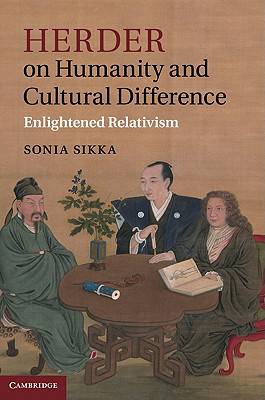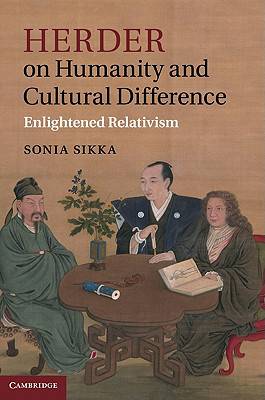
- Afhalen na 1 uur in een winkel met voorraad
- Gratis thuislevering in België vanaf € 30
- Ruim aanbod met 7 miljoen producten
- Afhalen na 1 uur in een winkel met voorraad
- Gratis thuislevering in België vanaf € 30
- Ruim aanbod met 7 miljoen producten
Zoeken
€ 93,95
+ 187 punten
Uitvoering
Omschrijving
Herder is often criticized for having embraced cultural relativism, but there has been little philosophical discussion of what he actually wrote about the nature of the human species and its differentiation through culture. This book focuses on Herder's idea of culture, seeking to situate his social and political theses within the context of his anthropology, metaphysics, epistemology, ethics, theory of language and philosophy of history. It argues for a view of Herder as a qualified relativist, who combined the conception of a common human nature with a belief in the importance of culture in developing and shaping that nature. Especially highlighted are Herder's understanding of the relativity of virtue and happiness, and his belief in the impossibility of constructing a single best society. The book will appeal to a wide range of readers interested both in Herder and in Enlightenment culture more generally.
Specificaties
Betrokkenen
- Auteur(s):
- Uitgeverij:
Inhoud
- Aantal bladzijden:
- 294
- Taal:
- Engels
Eigenschappen
- Productcode (EAN):
- 9781107004108
- Verschijningsdatum:
- 21/04/2011
- Uitvoering:
- Hardcover
- Formaat:
- Ongenaaid / garenloos gebonden
- Afmetingen:
- 157 mm x 231 mm
- Gewicht:
- 566 g

Alleen bij Standaard Boekhandel
+ 187 punten op je klantenkaart van Standaard Boekhandel
Beoordelingen
We publiceren alleen reviews die voldoen aan de voorwaarden voor reviews. Bekijk onze voorwaarden voor reviews.







